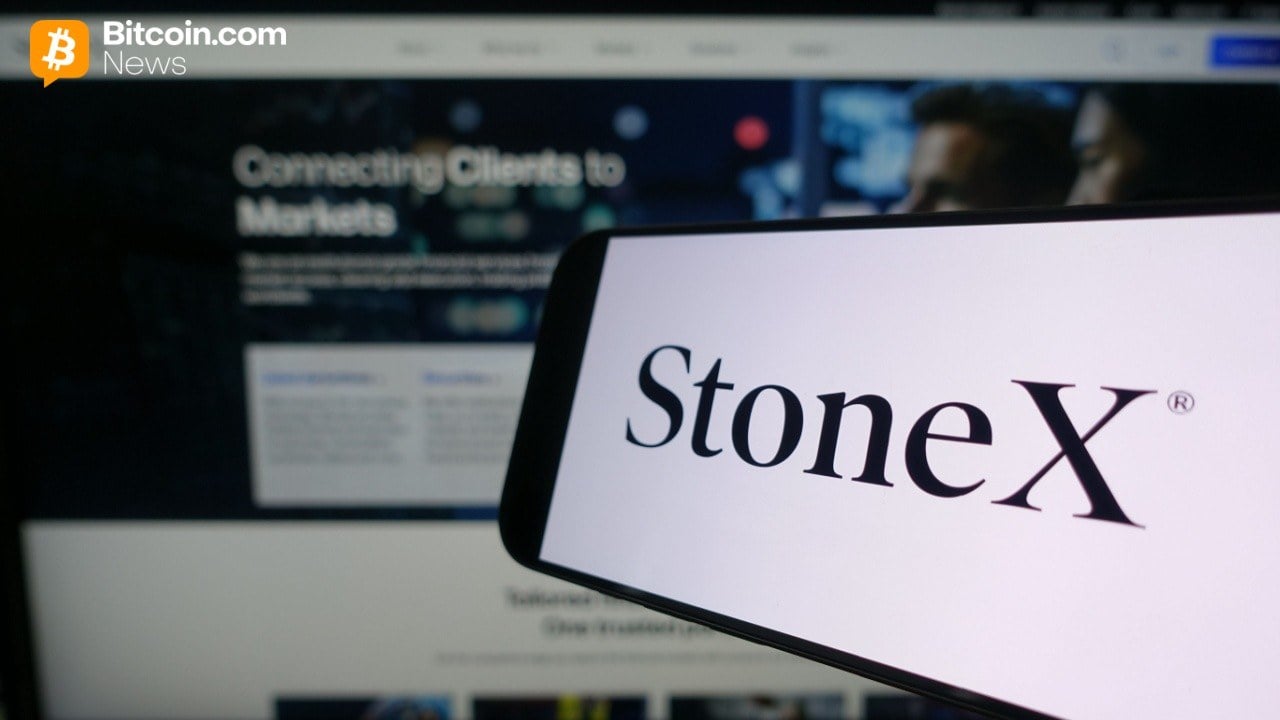As the US presidential election draws closer, bitcoin and crypto have become key political talking points in ways not previously seen. This can partly be attributed to the relative youth of the industry, as at the time of the 2020 election, Bitcoin had been operating for eleven years, Ethereum had only been live for five years, and many key DeFi protocols were only two or three years old (Maker, for example, launched as a working product in 2017, Uniswap and Compound in 2018.)
But skip forward to 2024 and the situation has evolved rapidly, with spot BTC ETFs operated by BlackRock and Vanguard (among others) now part of the TradFi landscape, spot ETH ETFs also lining up for launch later this summer, and–according to a recent report–40% of Americans now holding crypto.
Data from Security.org
This time around, then, crypto has become too big to ignore, Wall Street has gone ahead and placed bitcoin on its menu regardless of politics, and what’s more, a crypto-hostile SEC has forced crypto industry leaders into positions where pushback becomes a matter of survival, which increasingly means aligning with, and also influencing, pro-crypto political candidates.
After all, if legal battles with the SEC become the norm for crypto companies, and the SEC is endorsed by the Biden administration, then the crypto industry is unlikely to settle for more of the same.
Aligning with a pro-crypto alternative, of course, requires there to actually be a pro-crypto candidate, which in turn may incentivize the creation, among candidates, of pro-crypto policies, and if we take a look at the Trump camp and the support Trump is receiving from within the crypto industry, we can see this dynamic playing out.
Kraken Founder Donates to Trump
At the end of June, Jesse Powell, the founder of major crypto exchange Kraken, posted on X to let it be known he had personally donated $1 million, mostly in ETH, to Donald Trump. Powell describes Trump as the “only pro-crypto major party candidate in the 2024 Presidential election”, and states directly that “the crypto industry has been under attack by Elizabeth Warren, Gary Gensler and others”, also claiming that, “the Biden White House has stood by and allowed a campaign of unchecked regulation by enforcement”.
I just personally donated $1m (mostly #ETH) to @realDonaldTrump.
For too long, the crypto industry has been under attack by Elizabeth Warren, Gary Gensler and others. Despite overwhelming bipartisan Congressional efforts to put clear rules in place, the Biden White House has… pic.twitter.com/Ksxf3P2oCb
— Jesse Powell (@jespow) June 28, 2024
Powell’s post is unequivocal in placing blame on the Democrat administration and the SEC, and notably, it ends with the hashtag “#freeross”. This is a reference to Ross Ulbricht, who in 2015 was sentenced to double life in prison plus forty years without parole, having built and run the online black market Silk Road, which mainly facilitated drug trades paid for in BTC. This is relevant in Powell’s post because last month Trump pledged, if elected, to commute Ulbricht’s sentence to time served, demonstrating awareness that the Silk Road operator’s incarceration is a major issue among veteran bitcoiners, who view the sentence handed down to Ulbricht as disproportionately harsh.
Other Crypto and Business Leaders Back Trump
Jesse Powell is not the only prominent crypto figure to have publicly backed Trump, as support has also rolled in from Gemini-founders Tyler and Cameron Winklevoss, and from ARK Invest founder and CEO Cathie Wood, who stated of her voting intentions, “I am a voter when it comes to economics, and on that basis, Trump”.
There was also a Trump fundraiser in June at the San Francisco residence of tech entrepreneur David Sacks, and at the end of last month, hedge fund manager Bill Ackman posted what looks like an indirect form of endorsement, or at least an exhortation to work productively with a Trump victory, as he stated, “the country should rally around Trump and help him succeed”, since Trump is “going to win in a landslide”.
.@realDonaldTrump is going to win in a landslide. The country should rally around Trump and help him succeed.
Trump didn’t expect to win the first time he was elected. As a result, he was totally unprepared. The lack of preparation, the Russia investigation and the ensuing…
— Bill Ackman (@BillAckman) June 28, 2024
Additionally, Bitcoin Magazine CEO David Bailey let it be known publicly back in May that his organization is “working with the Trump campaign to develop their bitcoin and crypto policy agenda”. This announcement came shortly before Trump’s campaign began accepting donations in crypto, and was prior to Trump speaking about Ross Ulbricht, and gaining plaudits for a commitment to champion US bitcoin mining.
Are SOL ETF Applications a Bet on Trump?
Last month, both VanEck and 21Shares filed applications for spot SOL ETFs. Although similar products for BTC and ETH have been approved, a Solana fund seemed like a long shot as it moves further along the altcoin risk curve, and there is no existing Solana futures market.
As such, some observers interpreted the applications as a bet on an incoming Trump presidency that will make crypto-friendly changes at the SEC. Accordingly, there has been speculation about who might, under these circumstances, take over the position of SEC Chairperson, with Dan Gallagher being one media-circulated name that was greeted with enthusiasm. Gallagher is the current CLO at trading and investment platform Robinhood and a former SEC commissioner, and would be expected to take an open-minded approach to crypto.
Speculation about appointments is currently just that–speculation–but expectations that the character of the SEC will change under a new chairperson are very real. What’s more, last month saw the Supreme Court overrule the Chevron Doctrine, an outcome that is expected to shift power (as it relates to interpreting Acts of Congress) away from regulatory agencies and back towards the courts, perhaps limiting the extent to which the SEC can–as its detractors allege–rule by enforcement.
What looks certain for now though, is that a crypto industry that has repeatedly expressed its frustration with US regulators now sees opportunity at the next election.
As the US presidential election draws closer, bitcoin and crypto have become key political talking points in ways not previously seen. This can partly be attributed to the relative youth of the industry, as at the time of the 2020 election, Bitcoin had been operating for eleven years, Ethereum had only been live for five years, and many key DeFi protocols were only two or three years old (Maker, for example, launched as a working product in 2017, Uniswap and Compound in 2018.)
But skip forward to 2024 and the situation has evolved rapidly, with spot BTC ETFs operated by BlackRock and Vanguard (among others) now part of the TradFi landscape, spot ETH ETFs also lining up for launch later this summer, and–according to a recent report–40% of Americans now holding crypto.
Data from Security.org
This time around, then, crypto has become too big to ignore, Wall Street has gone ahead and placed bitcoin on its menu regardless of politics, and what’s more, a crypto-hostile SEC has forced crypto industry leaders into positions where pushback becomes a matter of survival, which increasingly means aligning with, and also influencing, pro-crypto political candidates.
After all, if legal battles with the SEC become the norm for crypto companies, and the SEC is endorsed by the Biden administration, then the crypto industry is unlikely to settle for more of the same.
Aligning with a pro-crypto alternative, of course, requires there to actually be a pro-crypto candidate, which in turn may incentivize the creation, among candidates, of pro-crypto policies, and if we take a look at the Trump camp and the support Trump is receiving from within the crypto industry, we can see this dynamic playing out.
Kraken Founder Donates to Trump
At the end of June, Jesse Powell, the founder of major crypto exchange Kraken, posted on X to let it be known he had personally donated $1 million, mostly in ETH, to Donald Trump. Powell describes Trump as the “only pro-crypto major party candidate in the 2024 Presidential election”, and states directly that “the crypto industry has been under attack by Elizabeth Warren, Gary Gensler and others”, also claiming that, “the Biden White House has stood by and allowed a campaign of unchecked regulation by enforcement”.
I just personally donated $1m (mostly #ETH) to @realDonaldTrump.
For too long, the crypto industry has been under attack by Elizabeth Warren, Gary Gensler and others. Despite overwhelming bipartisan Congressional efforts to put clear rules in place, the Biden White House has… pic.twitter.com/Ksxf3P2oCb
— Jesse Powell (@jespow) June 28, 2024
Powell’s post is unequivocal in placing blame on the Democrat administration and the SEC, and notably, it ends with the hashtag “#freeross”. This is a reference to Ross Ulbricht, who in 2015 was sentenced to double life in prison plus forty years without parole, having built and run the online black market Silk Road, which mainly facilitated drug trades paid for in BTC. This is relevant in Powell’s post because last month Trump pledged, if elected, to commute Ulbricht’s sentence to time served, demonstrating awareness that the Silk Road operator’s incarceration is a major issue among veteran bitcoiners, who view the sentence handed down to Ulbricht as disproportionately harsh.
Other Crypto and Business Leaders Back Trump
Jesse Powell is not the only prominent crypto figure to have publicly backed Trump, as support has also rolled in from Gemini-founders Tyler and Cameron Winklevoss, and from ARK Invest founder and CEO Cathie Wood, who stated of her voting intentions, “I am a voter when it comes to economics, and on that basis, Trump”.
There was also a Trump fundraiser in June at the San Francisco residence of tech entrepreneur David Sacks, and at the end of last month, hedge fund manager Bill Ackman posted what looks like an indirect form of endorsement, or at least an exhortation to work productively with a Trump victory, as he stated, “the country should rally around Trump and help him succeed”, since Trump is “going to win in a landslide”.
.@realDonaldTrump is going to win in a landslide. The country should rally around Trump and help him succeed.
Trump didn’t expect to win the first time he was elected. As a result, he was totally unprepared. The lack of preparation, the Russia investigation and the ensuing…
— Bill Ackman (@BillAckman) June 28, 2024
Additionally, Bitcoin Magazine CEO David Bailey let it be known publicly back in May that his organization is “working with the Trump campaign to develop their bitcoin and crypto policy agenda”. This announcement came shortly before Trump’s campaign began accepting donations in crypto, and was prior to Trump speaking about Ross Ulbricht, and gaining plaudits for a commitment to champion US bitcoin mining.
Are SOL ETF Applications a Bet on Trump?
Last month, both VanEck and 21Shares filed applications for spot SOL ETFs. Although similar products for BTC and ETH have been approved, a Solana fund seemed like a long shot as it moves further along the altcoin risk curve, and there is no existing Solana futures market.
As such, some observers interpreted the applications as a bet on an incoming Trump presidency that will make crypto-friendly changes at the SEC. Accordingly, there has been speculation about who might, under these circumstances, take over the position of SEC Chairperson, with Dan Gallagher being one media-circulated name that was greeted with enthusiasm. Gallagher is the current CLO at trading and investment platform Robinhood and a former SEC commissioner, and would be expected to take an open-minded approach to crypto.
Speculation about appointments is currently just that–speculation–but expectations that the character of the SEC will change under a new chairperson are very real. What’s more, last month saw the Supreme Court overrule the Chevron Doctrine, an outcome that is expected to shift power (as it relates to interpreting Acts of Congress) away from regulatory agencies and back towards the courts, perhaps limiting the extent to which the SEC can–as its detractors allege–rule by enforcement.
What looks certain for now though, is that a crypto industry that has repeatedly expressed its frustration with US regulators now sees opportunity at the next election.







